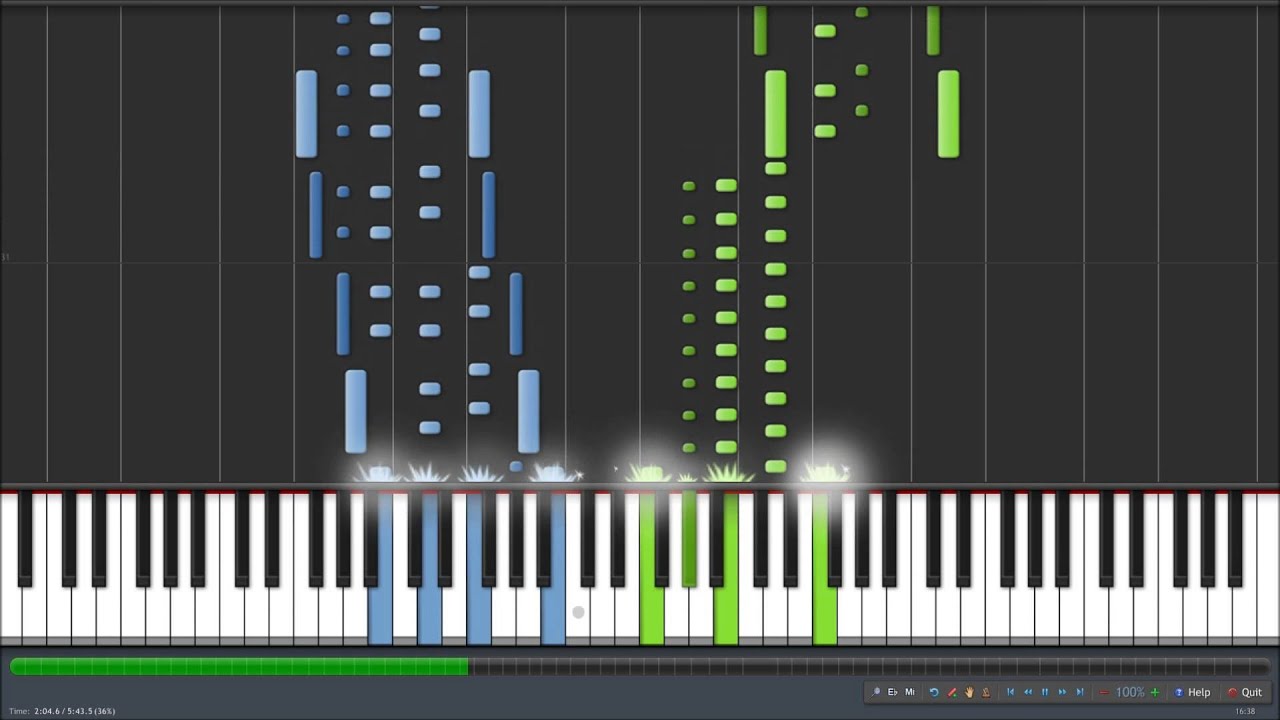Music of Piano Scales
Someone wrote to ask about ideas in piano practice routines. Here's a thought.
Scales, scales, scales.
Begin your mastery with scales. First, master the Hanon Piano Exercise Hanon Piano Exercise. Which at the end spells out all major and minor scales in all keys, and chromatic scales.
You should be able to run scales smoothly, with precise control of speed and dynamics, absolute dictation of left/right hand independence, capable of executing one or more loud staccato on any chosen set of notes amid quite background run in any scale of any key, and with one hand running double, triple, quadruple tempo than the other and constantly and abruptly switch left/right roles or play catchup or dynamics-exchange, or any mathematical combinatorics of the above, with eventually a left right hand independence, where each hand runs their own arbitrary scales, all these with your eyes closed. (one should be able to play anything piano-forte eyes-closed, basic or advanced, to begin with. If you cannot play with eyes closed, there's something wrong already. When you are ready to leap, you'll be able with eyes-closed too.)
One way to note the mastery of scales is to listen to Jorge Bolet (1914 to 1990) or Claudio Arrau (1903 to 1991) play of Liszt's Liszt Transcendental Etude #12
Liszt: The Complete Etudes Franz Liszt, Claudio Arrau, Nikita Magaloff Buy at amazon

- https://youtu.be/RB7kSq69z08
- Liszt Transcendental Etude #12.
Liszt_Transcendental_Etude_12_music_sheet.pdf
Complete Etudes for Solo Piano, Series I: Including the Transcendental Etudes (Dover Music for Piano) Buy at amazon
for live performances, see Liszt Transcendental Etude #12
It is surprising that in the later years of his life, much of Liszt's virtuosity was treated with great contempt. “Do you think I care how fast you play octaves?” he once thundered at an unfortunate student who showed an aptitude for flamboyance. This outburst could have stemmed perhaps from the self-castigation of his own guilty recollection of his early days as a travelling virtuoso. There is also a rather amusing quotation in a letter Liszt wrote at the end of his life. He must have been really fed-up:
Franz Liszt Everyone is against me. Catholics, because they find my church music profane, Protestants because to them my music is Catholic, Freemasons because they think my music too clerical; to the conservatives I am a revolutionary, to the 'Futurists' an old Jacobin. As for the Italians... if they support Garibaldi they detest me as a hypocrite; if they are on the Vatican side, I am accused of bringing Venus's grotto into the Church. To Bayreuth I am a not a composer but a publicity agent. Germans reject my music as French, the French as German, to the Austrians I write Gypsy music, to the Hungarians foreign music. And the Jews loathe me, my music and myself, for no reason at all.
from blog by Johann D'Souza at
http://inkpot.com/classical/lisztrans.html
Note their exquisite execution of scales running up and down by the left hand, impeccably fluid, imperceptibly subtle, death impinging. I doubt any genius or prodigy or idiot savant their capability of one listen and play of this piece. I bet they can listen one hundred times and not able to play once correctly of Liszt's Snowplough. Mozart prodigies can go home.
When you understand this piece, you see that the execution of scales is a art of its own. One can create the greatest music, greatest musical expression, by just running scales alone.
With my programme, after mastery of scales, one would master chords — broken or whole. The mathematical combination is staggering. Right now i'm still at the scale level.
PS de-focus on sight reading. Commence a programme of music theory lettering. After a couple years of music theory, sight reading becomes a child's play. The traditional music-notation and associated sight-reading is there to waste beginner's time.
Piano Keyboard Action
- Piano keyboard actions: Acoustic vs Modern Weighted
- Weighted keyboard actions: Digital Piano vs Synthesizer
- Weighted keyboard actions: a comparison of 4 digital keyboards
- Piano keyboard actions: MP9000 problems and misc notes
- Digital Chromatic Abruption
- Piano Scale Practice; Liszt Transcendental Etude #12
- Kawai MP9000 Key Action
- Chopin vs Liszt